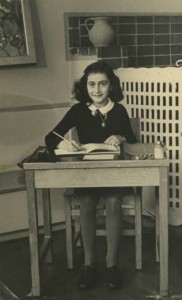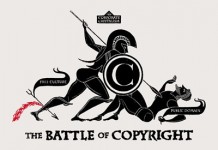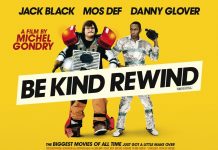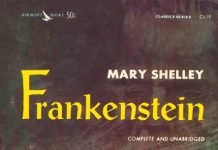 A disturbing New York Times story illustrates perfectly the dangers of over-corporatizing the public domain. The Anne Frank Foundation, which has been administering the copyright of Frank’s famous diary, has been trying to retroactively add a co-author to this book in order to prevent it from entering the public domain. As the New York Times explains:
A disturbing New York Times story illustrates perfectly the dangers of over-corporatizing the public domain. The Anne Frank Foundation, which has been administering the copyright of Frank’s famous diary, has been trying to retroactively add a co-author to this book in order to prevent it from entering the public domain. As the New York Times explains:
“Copyrights in Europe generally end 70 years after an author’s death. Anne Frank died 70 years ago at Bergen-Belsen, a concentration camp, and Otto Frank died in 1980. Extending the copyright would block others from being able to publish the book without paying royalties or receiving permission.”
There are a few issues here. First, where this particular topic is concerned, profit should not be the motivating factor. My Grade 3/4 class recently read a book called ‘Hana’s Suitcase,’ about a Holocaust education group in Japan that used one girl’s story as the basis for introducing students to this topic. One of the things the director of the group struggled with was that Japan had very few survivors of such events anyway, and with the passage of time, even fewer. Many students had never studied the events of the Holocaust before. I think that Anne Frank’s famous diary deserves to enter the public domain at its appointed time because her work can be so important in sharing this important era of history with young people who will increasingly have less and less real context for it.
Secondly, I don’t like the idea that one can retroactively apply a co-author like this. If Otto Frank was indeed a ‘co-author’ and not merely an editor or compiler, that should have been established from the outset. Adding it now, just as the copyright term is about to end, feels under-handed to me and I don’t think they should be allowed to get away with it. Nobody is stealing anything from the heirs of Otto Frank, or this foundation. They had 70 years to profit from a work that none of them created. Why is’t that enough? Why should their financial interests over-rule the good this work can do if it is allowed to be freely built up, studied and distributed now that its proper term of copyright is over?
Related: Cory Doctorow’s thoughts (via Nate), including his belief that a pro-Frank Foundation ruling could actually subvert the rights of writers.
Image credit: Here.


































And here’s an interesting wrinkle that applies to you, Joanna.
A reader has pointed out that in Canada the original copyright expired 20 years ago. This means that you (as a Canadian) can legally distribute the original diary, and even have someone translate it into English.
That puts the recent shenanigans in a different light, doesn’t it?
@Nate: Thanks for the additional info. Problem solved. No need to fight back. We’ll all stay legal and move to Canada. 😉
No it doesn’t. That is the whole point. Otto Frank died in 1980. If he is, as the Foundation asserts, a ‘co-author’ then this work is not in the public domain anywhere.
You can’t generally pull works out of the public domain once they’re already there, though.
There’s a parallel here the UK rights to Peter Pan. Here’s a description from its holder.
—–
Does Great Ormond Street Hospital have the copyright in Peter Pan in perpetuity?
No, the hospital has a right to royalty in perpetuity in the UK, but this is not a true copyright. This right was granted to the hospital by the Copyright Designs & Patents Act (1988) (CDPA) and applies to stage productions, broadcasting and publication of the whole or any substantial part of the work or an adaptation of it in the UK. This right does not apply to derivative works such as sequels, prequels, spin-offs or to extracts.
The play Peter Pan is in copyright in the US until 2023, and in Spain until 2017. This applies to stage adaptations of the story.
The copyright has expired everywhere else so, apart from the play in the US and Spain, it is considered in the public domain.
http://www.gosh.org/about-us/peter-pan/faqs#Does%20Great%20Ormond%20Street%20Hospital%20have%20the%20copyright%20in%20Peter%20Pan%20in%20perpetuity?
—-
See also from 2007 here:
——
A vital source of funding for the hospital will come under threat from January 1 when Peter and his Neverland companions are thrust into the public domain. Author JM Barrie bequeathed all the rights to Peter Pan to the hospital in 1929 and they have provided badly needed funds ever since.
But with the 70th year after Barrie’s death in 1937 coming to an end, Peter Pan will be fair game for any budding sequel writers and Great Ormond Street children’s hospital will lose another chunk of revenues.
http://www.theguardian.com/business/2007/dec/28/gtormondst
—-
Note what GOSH says about it not owning the rights to sequels. The Guardian gets that wrong.
The hitch with making exceptions for charities—GOSH or the Great Ormond Street Hospital is a major UK children’s hospital—is that the list of such exceptions could become extremely long. First, Peter Pan, then Anne Frank’s diary, then….. There are a lot of worthy causes. Some author estates might even transfer their rights to a charity just before they expire to maintain control over them in perpetuity.
—–
The co-author ploy puts an interesting spin on life-plus copyrights. On one hand, they ensure that an author or his spouse are less likely to lose their income from their early works while alive. On the other hand, it complicates figuring out when the copyright of little-known authors expire. Adding pseudo-authors makes that even more complex. That’s why I tend to favor a fixed term after publication. It also lets an author or estate’s copyright income fall off gradually as each book falls into the public domain.
—–
The fact that the Frank estate wants to belatedly add a co-author isn’t surprising. Corporations (i.e. Disney) tend to think well in advance to protect their copyright. Individuals and their family often don’t. Too much sentimentality at play.
The literary estate for Noble Prize winning author, John Steinbeck, wasn’t mentioned in his will, so it fell into his residuals clause. That meant it was inherited by his third wife. On her death, it went to her children from a previous marriage. That’s left Tom Steinbeck with no rights to his father’s legacy, including preventing it from abuse.
http://www.nytimes.com/2004/08/02/nyregion/steinbeck-heirs-entangled-in-an-epic-family-lawsuit.html
And abuse happens. I knew Gail Steinbeck, Tom’s wife, when the family was temporally back in control of his estate. She told me that all sorts of people contacted her for permission, including quotes from Cannery Row to be put on cans of tuna. She was careful about who got those rights. Non-family might not be.
Also, public domain is not all upside. There is no end to human perversity. Peter Pan or Anne Frank could be abused by malicious people with nasty agendas.
–Michael W. Perry, Inkling Books
Holocaust-deniers have been attacking the Diary of Anne Frank as ‘a fraud’ and they claim it has been written by her father.
Now the Anne Frank Foundation in Switserland, founded by Otto Frank himself is helping them by stating Otto Frank had been co-author (without Anne’s knowledge).
David Barnouw, Amsterdam
co-author of ‘The Diaries of Anne Frank, The Critical Edition’ (Doubleday 1989)
@David Barnouw: Yes, you’re obviously a leading authority on the diaries. The topic is important enough for us to run more than one post, and I’d love to see a detailed essay where you quoted the Holocaust-deniers on this issue. That way, the world can better grasp the outrageousness of the foundation’s efforts to portray Otto Frank as a coauthor. No pay, but a chance to help make certain that history and Anne Frank’s memory are respected. If you’re interested, I’m reachable at davidrothman@pobox.com / 703-370-6540. David Rothman, Publisher, TeleRead.
How about this: she did not just passively DIE, she was hounded, tortured, and starved to death. We are not talking about John Gunther, Jr, whose death from a brain tumor around the same age was no less tragic, but of morally neutral agency (the tumor did not deliberately target him) and whose parents fought their childs killer with every resource in a civilized society (Death Be Not Proud). We are discussing a child hounded to death by some of historys foulest bipedal monsters. So extend HER rights, as some OTHER people obsessed with bureaucracy curtailed them. She would have been likely to live at least 60 years without the intercession of German efficiency. Extend her copyrights 44 years, where they would have terminated naturally.